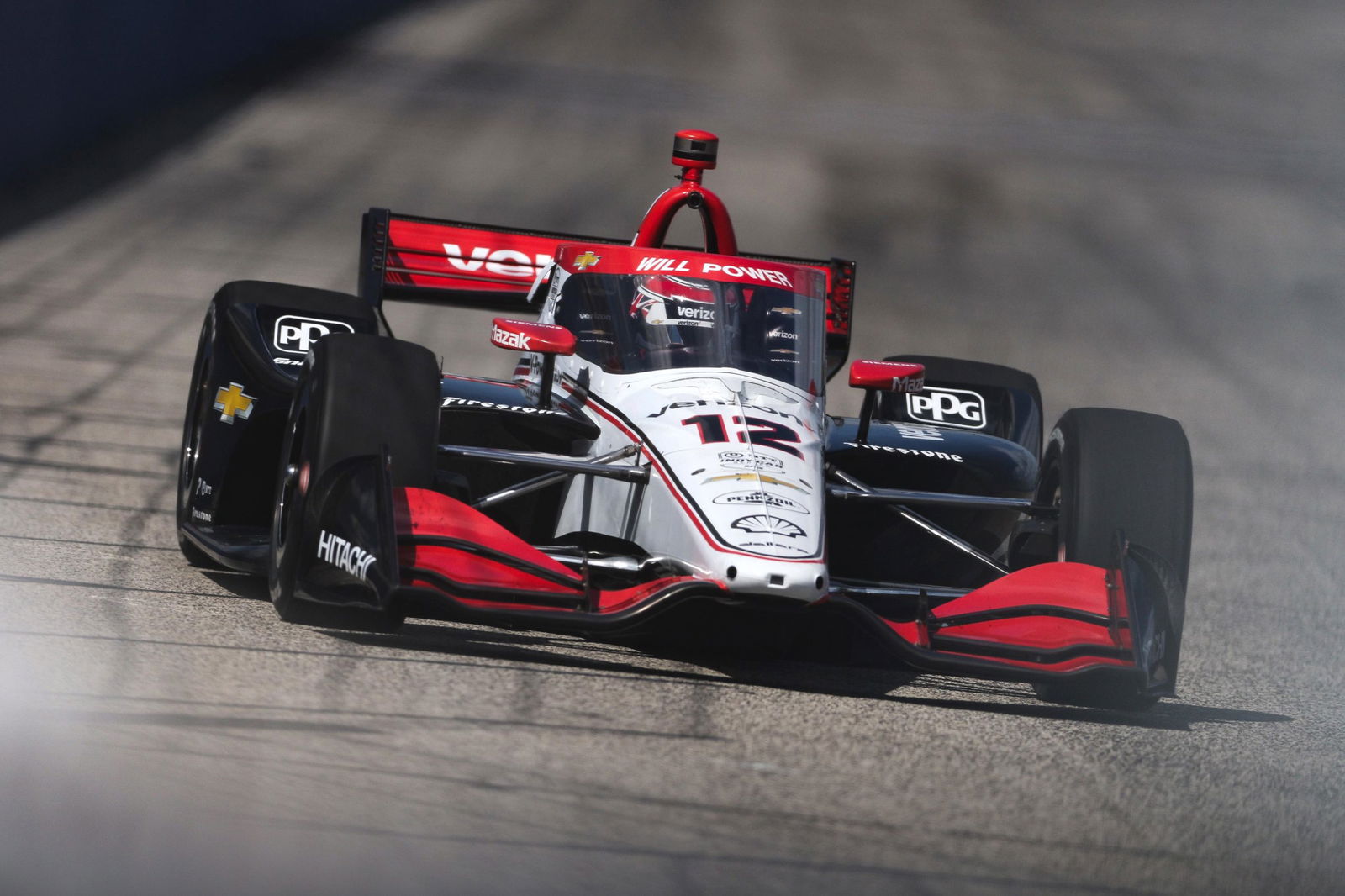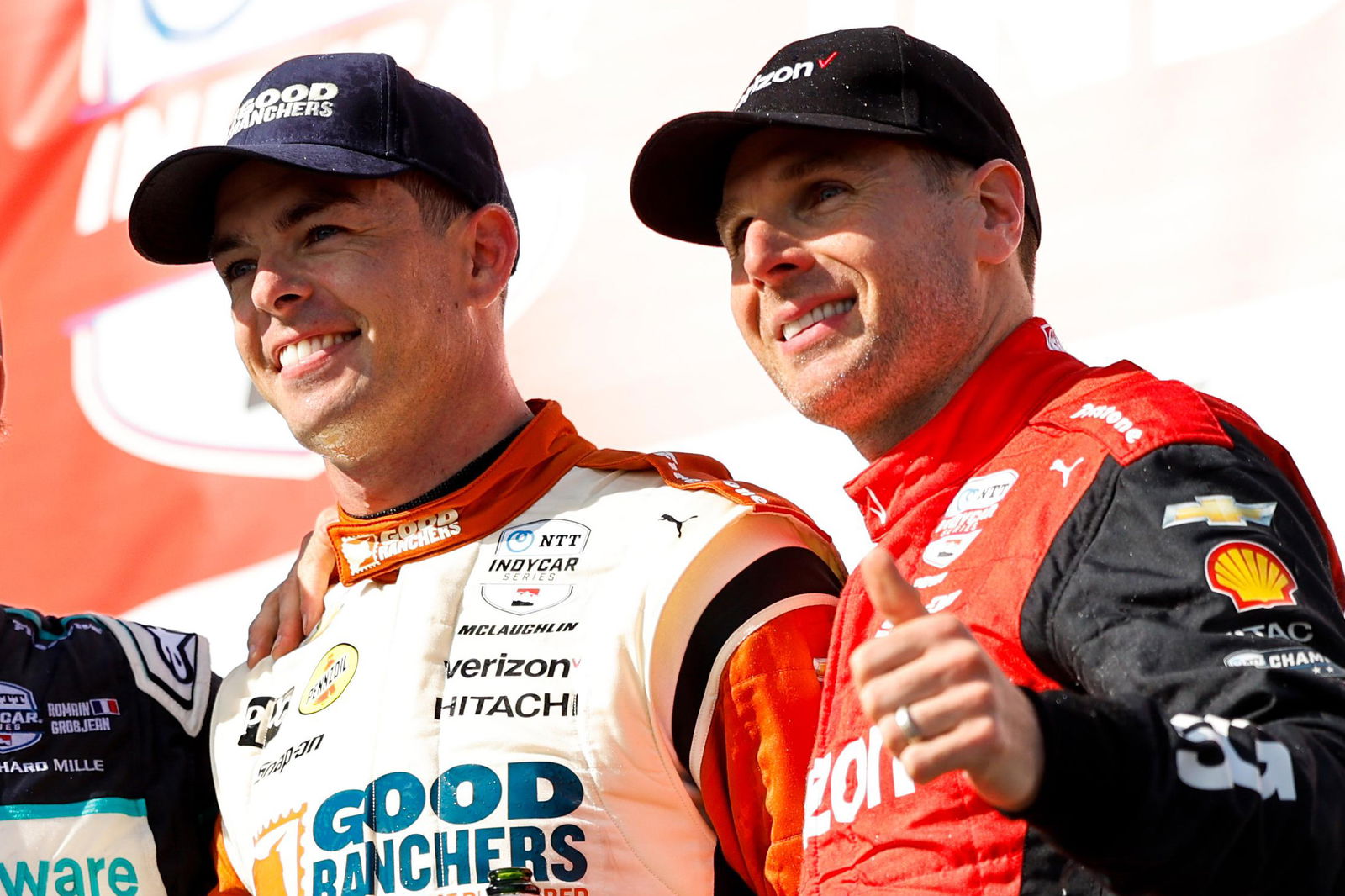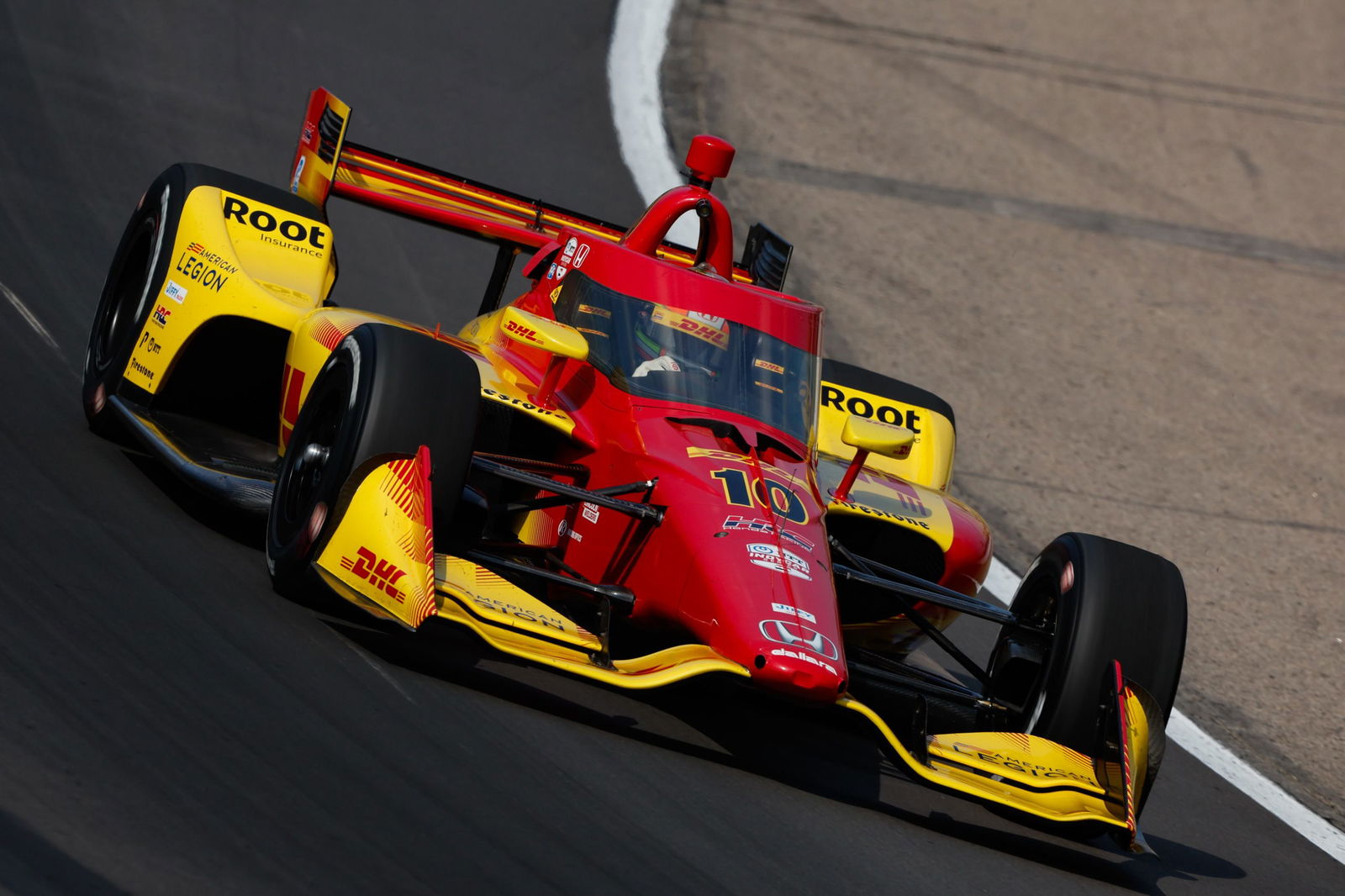

Mathematically, there are three drivers in with a shot of winning. Chip Ganassi Racing’s Alex Palou leads Team Penske duo Will Power and Scott McLaughlin.
McLaughlin is at seriously long odds to win the title with his hopes hanging on Palou not even starting Monday’s race. The prospects are better for Power, but he too has to hope a lot goes his way.
Bonus points are paid for leading the most laps (2), leading a lap (1), and pole position (1), and that could play a big part.
Here’s how the points stand with one race to go: Palou leads on 525 points, Power trails by 33 points (492) and McLaughlin is 50 points in arrears (475).
IndyCar points system
| Position | Points | Position | Points | Position | Points |
| 1st | 50 | 11th | 19 | 21st | 9 |
| 2nd | 40 | 12th | 18 | 22nd | 8 |
| 3rd | 35 | 13th | 17 | 23rd | 7 |
| 4th | 32 | 14th | 16 | 24th | 6 |
| 5th | 30 | 15th | 15 | 25th+ | 5 |
| 6th | 28 | 16th | 14 | ||
| 7th | 26 | 17th | 13 | Bonus points | |
| 8th | 24 | 18th | 12 | Pole position | 1 |
| 9th | 22 | 19th | 11 | Lap led | 1 |
| 10th | 20 | 20th | 10 | Most laps led | 2 |
How Scott McLaughlin can win the title
Let’s start with the easiest equation of the lot. For Scott McLaughlin to win the title, he needs Palou to not start the race. It’s unlikely, but not impossible.
From there, McLaughlin would need to win the race. Assuming he doesn’t score any bonus points, he would also have to hope Power scores less than 34 points.
McLaughlin can win with two bonus points and Power scores 35 points or fewer and Palou doesn’t start.
McLaughlin can win with three bonus points and Power scores 36 points or fewer and Palou doesn’t start.
McLaughlin can also win with four bonus points and Power scores 37 points or fewer and Palou doesn’t start.

How Will Power can win the title
Power’s equation is relatively simple, given he has to finish inside the top three, but changes depending on how bonus points play out.
If Power wins the race, Palou must score 18 points or fewer. That means finishing 12th with no bonus points.
If Power wins with three bonus points, then Palou must score 20 points or fewer.
If Power wins with four bonus points, then Palou must score 21 points or fewer.
If Power finishes second, Palou must score seven points or fewer.
If Power finishes second with one bonus point, Palou must score eight points or fewer.
If Power finishes second with two bonus points, Palou must score nine points or fewer.
If Power finishes second with three bonus points, Palou must score 10 points or fewer.
If Power finishes second with four points, Palou must score 11 points or fewer.
If Power finishes third with three bonus points, then Palou must score five points or less.
If Power finishes third with four bonus points, then Palou must score six points or less.
Anything lower than fourth, and Power loses the title regardless of where Palou finishes. Palou will receive five points for starting, and that would be enough to win the title if Power finished outside the top three.

How Alex Palou can win the title
With a maximum of 54 points on offer, the Spaniard needs just 22 points to seal the title.
He can do that if he finishes ninth or higher if Power scores the maximum amount of points available.
The points permutations take a twist if Palou scores pole. He’d then only need to finish 10th, or 11th if he led a lap.
If Palou doesn’t score pole but leads the most laps and Power scored the maximum 52 points available thereafter, Palou would win if he finished 13th or higher for leading the most laps and leading a lap, paying three points.
What’s the likelihood of Power winning?
In the past decade, only one driver has come into the final race of the season trailing and come out the other side victorious.
In 2015, Scott Dixon overcame Juan Pablo Montoya, winning on a countback.





















Discussion about this post